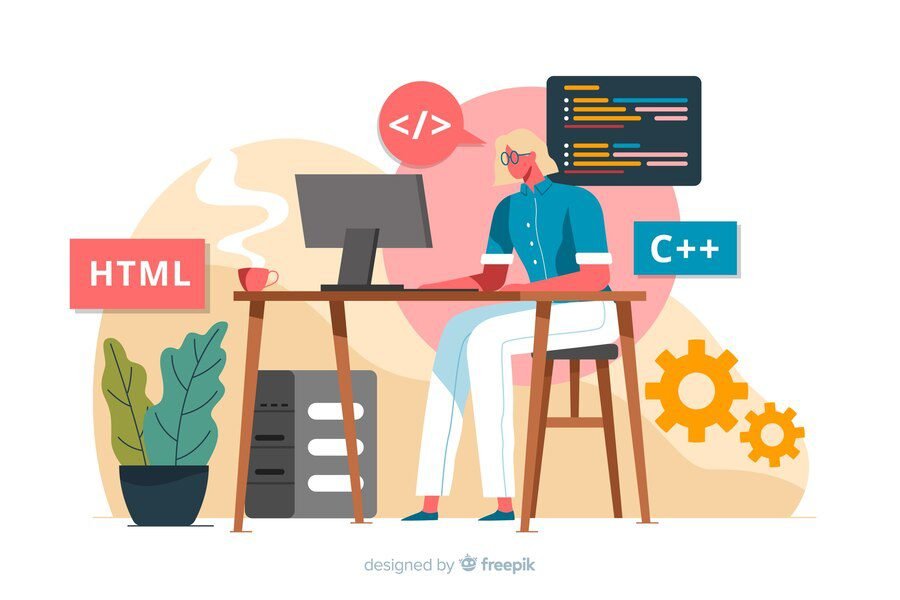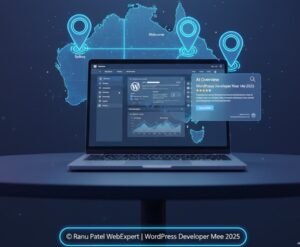Introduction
The world of coding is vast, and if you’re new to the industry, you might be confused between web developer and software development. While both careers involve writing code, the roles, skills, and career paths differ significantly.
In this blog, we’ll break down the differences so you can decide which path is right for you!
What is Web Development?
Web development focuses on building and maintaining websites and web applications. It involves designing how a website looks (front-end) and how it functions (back-end).
Types of Web Developers
-
Front-End Developer: Works on the visual aspects of a website, ensuring a great user experience.
-
Back-End Developer: Manages databases, servers, and application logic to ensure the website runs smoothly.
-
Full-Stack Developer: Proficient in both front-end and back-end development.
Key Skills of a Web Developer:
-
HTML, CSS, JavaScript
-
Frameworks (React, Angular, Vue.js)
-
Back-end languages (Node.js, PHP, Python, Ruby)
-
Database management (MySQL, MongoDB)
-
Responsive design and UI/UX principles
Career Opportunities for Web Developers
-
Web Designer & Developer
-
Front-End/Back-End Developer
-
WordPress Developer
-
E-commerce Developer
-
UI/UX Specialist
What is Software Development?
Software development is broader and focuses on creating applications that run on computers, mobile devices, or embedded systems. Unlike web development, software development isn’t limited to the internet.
Types of Software Developers
-
Application Developer: Creates desktop and mobile apps.
-
System Developer: Works on operating systems, databases, and networks.
-
Embedded Systems Developer: Develops software for smart devices like IoT products and automotive systems.
Key Skills of a Software Developer:
-
Programming languages (Java, Python, C++, Swift, Kotlin)
-
Software development methodologies (Agile, DevOps, Scrum)
-
Cloud computing (AWS, Azure, Google Cloud)
-
Database management
-
Debugging and testing
Career Opportunities for Software Developers
-
Mobile App Developer
-
Game Developer
-
Cloud Engineer
-
AI/ML Developer
-
DevOps Engineer
Key Differences: Web Development vs. Software Development
| Feature | Web Development | Software Development |
|---|---|---|
| Focus | Websites & web apps | Desktop, mobile, & embedded apps |
| Programming Languages | HTML, CSS, JavaScript, PHP, Python | Java, C++, Python, Swift |
| Job Scope | UI/UX, responsive design, databases | System architecture, app development, AI |
| Career Flexibility | Mostly online-based | Can work in different industries |
| Salary | Generally lower than software developers | Higher, depending on industry |
Which Career Should You Choose?
-
Choose Web Development if you love designing websites, working with UI/UX, and enjoy front-end or back-end coding.
-
Choose Software Development if you prefer building applications, solving complex problems, and working with different devices.
Both careers offer excellent opportunities, but it depends on your interests and long-term goals!
FAQs
A: Web development is generally easier to start with because HTML, CSS, and JavaScript are beginner-friendly. However, mastering back-end development can be challenging.
A: Software developers typically earn more due to their involvement in complex applications, AI, and system-level programming.
A: Yes! Many web developers transition into software development by learning additional programming languages like Java, C++, or Python.
A: No, but having a degree in computer science or a related field can be beneficial.
Numerous successful developers are self-taught or have gone through coding bootcamps.
Conclusion
Both web development and software development are lucrative career paths with great demand. If you enjoy working on websites and digital experiences, go for web development. If you prefer application development and problem-solving, software development is your best bet.
No matter which path you choose, the key to success is continuous learning and hands-on practice!








